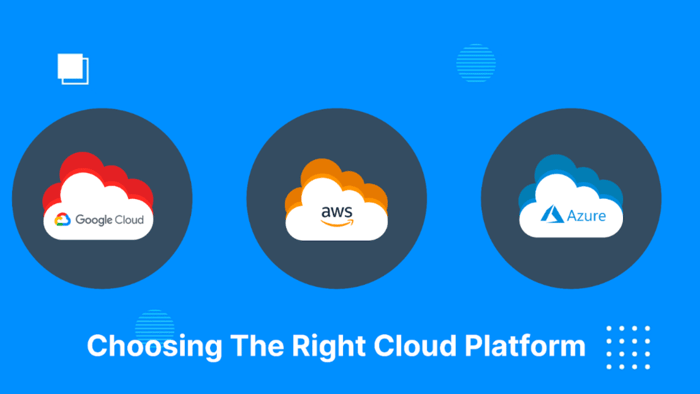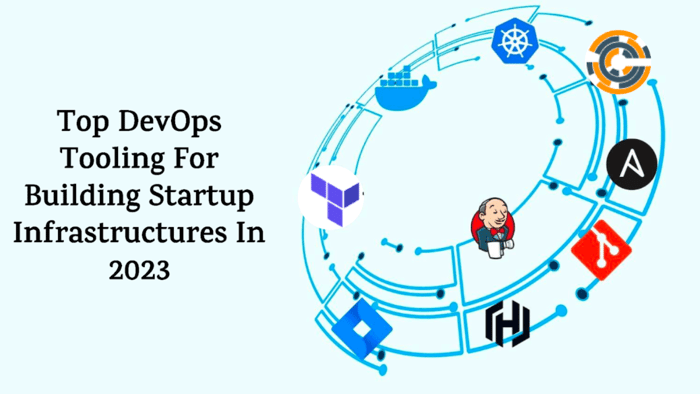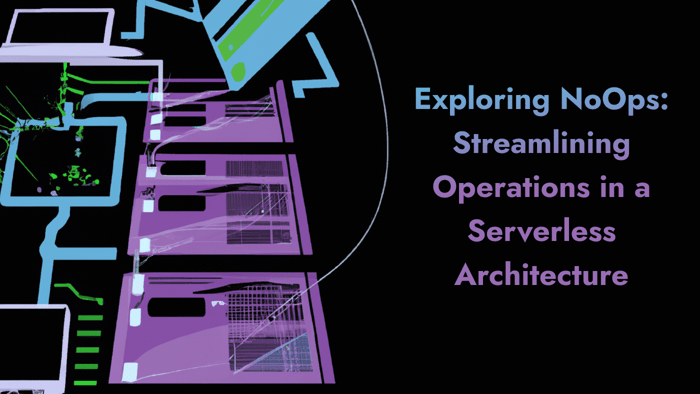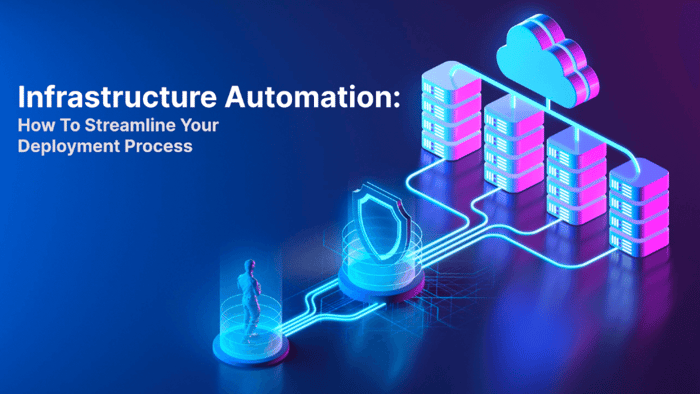Discover cloud platform options & benefits to help choose the right one for your needs.
Introduction
Cloud computing has revolutionized the way businesses operate in today's digital world. Both small businesses and multinational corporations now rely on cloud platforms as an integral part of their IT infrastructure. Selecting the right cloud platform is crucial for an organization's success. For instance, a business handling sensitive customer data requires a cloud platform with robust security measures, while a business heavily dependent on machine learning and artificial intelligence needs a platform with powerful machine-learning capabilities.
Consider a startup aiming to develop a mobile app connecting farmers with buyers. Building such an app requires managing large amounts of data, processing payments, and ensuring secure access to users' information. Consequently, choosing the right cloud platform is essential for the app's reliability, scalability, and security.
In this article, we will compare Google Cloud Platform (GCP), Amazon Web Services (AWS), and Microsoft Azure, shedding light on their unique features and benefits. We will also discuss the significance of scalability, reliability, security, and customer support in selecting the ideal cloud platform for your business needs. By the end of this article, decision-makers and influencers within your organization will have a clearer understanding of the key factors to consider when choosing between these cloud platforms, enabling them to make well-informed decisions.
Prerequisite
Before we continue in this article, it's important to understand some key concepts and prerequisites to effectively compare AWS, GCP, and Azure.
- Familiarity with DevOps practices: This includes practices like automation, continuous integration, and continuous delivery. They emphasize collaboration and communication between development and operations teams.
- Cloud Computing: The delivery of computing services like servers, storage, databases, networking, software, analytics, and intelligence over the internet.
- Infrastructure as Code (IaC): A practice that allows you to manage your infrastructure using code, rather than manually configuring hardware devices and operating systems. This means that you can automate the process of setting up and managing your infrastructure, making it easier and more efficient to manage.
- Platform as a Service (PaaS): PaaS refers to cloud computing services that provide a platform for building, deploying, and managing applications. This includes services such as databases, development frameworks, and application hosting platforms.
- Software as a Service (SaaS): SaaS refers to cloud computing services that provide fully functional applications over the internet. This includes email services, productivity suites, and collaboration tools.
When it comes to choosing the right cloud platform for your organization, several factors come into play. These factors include cost, scalability, reliability, security, and ease of use. Let's explore these factors.
Cost and Pricing Models
One of the most important factors to consider when choosing a cloud platform is the cost. GCP, AWS and Azure all offer a pay-as-you-go pricing model, where you only pay for what you use. However, the pricing structures of these platforms differ, and you need to understand the pricing models to make an informed decision.
Here is a simple comparison based on machine type:
Aside from the $300 free credits for new customers and 20+ free products for all customers, GCP uses a per-second billing model that charges users based on the exact amount of resources used. This pricing model is ideal for short-lived applications that require fewer resources. GCP also offers committed user discounts that allow users to save up to 57% on their computing costs. GCP also provides a pricing calculator to help businesses and individuals estimate their cost of usage.
Aside from the free-tier services, AWS charges for services based on their usage, and they offer pricing models such as On-Demand Instances, Reserved Instances, and Spot Instances. On-Demand Instances are charged per hour of usage, Reserved Instances offer discounted rates for long-term commitments, while Spot Instances are a cost-effective option that allows users to bid for unused computing capacity. AWS also provides a pricing calculator to help businesses and individuals estimate their cost of usage.
Azure, on the other hand, uses a consumption-based pricing model, where users are charged for the services they use. This pricing model is suitable for businesses that want to scale up or down their usage based on demand. Azure also offers reserved instances that provide discounted rates for long-term commitments. Azure also provides a pricing calculator to help businesses and individuals estimate their cost of usage.
As a CTO, VPE, or senior manager, understanding the cost structure of cloud platforms is crucial for decision-making. Moreover, for the technical influencers, such as founding engineers or principal engineers, it's essential to ensure that the selected platform provides the required features and services, such as IaC, DevOps tooling, serverless, and Kubernetes support. This way, your organization can strike a balance between meeting budget constraints and ensuring the platform meets the technical needs of the team.
Features and Services
When choosing a cloud platform, another important factor to consider is the features or services offered by the platform. These features and services vary among cloud providers, and businesses need to carefully evaluate them to ensure they are choosing a platform that aligns with their specific needs.
Let’s explore the features and services offered by GCP, AWS, and Azure, and analyze which platform provides the best options for your business.
Computing Services
Computing services are the backbone of cloud computing, providing virtualized computing resources that enable you to run your applications on the cloud. GCP provides Compute Engine, AWS provides Elastic Compute Cloud(EC2) and Azure provides Virtual machines for their computing services.
Let’s see how these services compare to each other.
Storage Services
Cloud storage services provide scalable and reliable storage for your data and applications. GCP provides Cloud Storage, AWS provides Simple Storage Service (S3) and Azure provides Blob Storage for their storage services.
Let’s see how these services compare to each other.
Database Services
Cloud database services provide scalable and managed databases for your applications. GCP provides Cloud SQL, AWS provides Amazon Relational Database Service (RDS) and Azure provides Azure SQL Database for their database services.
Let’s see how these services compare to each other.
Machine Learning Services
Cloud machine learning services provide various tools and frameworks for building and deploying machine learning models. GCP provides Cloud AI Platform, AWS provides Amazon SageMaker and Azure provides Azure Machine Learning for their machine learning services.
Let’s see how these services compare to each other.
Scalability and Reliability
Scalability and reliability are crucial factors that decision-makers, whether they are at the enterprise or startup level, need to consider when choosing a cloud platform. Scalability refers to the ability of a system to handle increasing workloads without compromising performance, while reliability refers to the ability of a system to consistently perform its intended function over time.
For businesses to meet customer demands and maintain their reputation, they must ensure their infrastructure can scale and remain reliable. If their infrastructure cannot handle the increased load, they risk downtime, slow performance, and dissatisfied customers. Downtime can result in lost revenue, customer dissatisfaction, and damage to the company's reputation.
Therefore, it is crucial for businesses to choose a cloud platform that offers high scalability and reliability measures. GCP, AWS, and Azure all offer various measures to improve the scalability and reliability of their services. Below are some of the measures they offer:
- Auto-scaling: GCP, AWS, and Azure offer auto-scaling capabilities that automatically adjust the number of resources allocated to your workload based on demand. This feature is essential for infrastructure that requires optimal resource utilization.
- Load balancing: GCP, AWS, and Azure offer various load balancing options to distribute traffic evenly across instances, ensuring high availability and reliability. This feature is crucial for infrastructures that need to be available and responsive at all times.
- Multi-region deployments: GCP, AWS, and Azure allow you to deploy your workload across multiple regions for added redundancy and reliability. This feature helps address concerns around disaster recovery and business continuity.
- Serverless: AWS Lambda and Azure Functions provide serverless solutions that enable you to run your code without provisioning or managing servers. This makes them highly scalable and reliable because they can automatically adjust the resources allocated to your workload based on demand. These solutions are particularly appealing for founding engineers in startups who need to focus on code development and innovation without worrying about infrastructure management.
The best platform for scalability and reliability measures largely depends on the specific needs of your business. However, all three cloud platforms offer robust measures to improve scalability and reliability, making them suitable options for most businesses.
If your business needs a highly scalable and reliable solution, AWS Lambda and Azure Functions are good options because they allow you to run your code without provisioning or managing servers. This makes them highly scalable and reliable because they can automatically adjust the resources allocated to your workload based on demand.
For businesses that require multi-region deployments and load-balancing capabilities, GCP, AWS, and Azure are all good options. They all offer these features, allowing businesses to deploy their workload across multiple regions for added redundancy and reliability.
Security and Compliance
Security and compliance are other essential factors to consider when it comes to choosing the right cloud platform for your business needs. Data privacy and compliance are critical aspects for businesses, and each platform offers different security features and services to meet these requirements.
Let's take a closer look at the cloud security provided by each platform:
- Google Cloud provides a range of security solutions that can be used in the cloud, on-premises, or in hybrid deployments. Their security features include protecting your organization with Google Cloud security solutions, protecting your applications, building on Google's secure-by-default infrastructure, and relying on their global network. Google Cloud also offers solutions such as Risk and Compliance as Code (RCaC), Security Analytics and Operations, and Web App and API Protection (WAAP) to protect against fraud, detect and investigate threats, and protect against common web vulnerabilities and exploits.
- AWS offers a range of infrastructure and services to elevate your security in the cloud. AWS data centers and network architecture are designed to protect your information, identities, applications, and devices. AWS provides a range of services and features that enable you to meet core security and compliance requirements, such as data locality, protection, and confidentiality. AWS offers solutions such as Amazon GuardDuty, AWS Security Hub, Amazon Inspector, AWS Firewall Manager, and AWS Key Management Service (KMS) to automate security tasks and reduce the risk of human configuration errors.
- Azure offers built-in services to strengthen the security of your cloud workloads. These services include protecting data, apps, and infrastructure quickly with built-in security services in Azure. Azure also enables a layered defense-in-depth strategy across identity, data, hosts, and networks, unifying security management and enabling advanced threat protection across hybrid cloud environments. Azure provides a range of security products such as Microsoft Defender for Cloud, Key Vault, Azure DDoS Protection, and Azure Information Protection to safeguard cryptographic keys, control and secure email, documents, and sensitive data, and protect your Azure resources from denial of service threats.
Each platform offers a range of security features and services, making them suitable for different business needs. It's crucial to consider your business's specific requirements and choose the platform that offers the best security and compliance measures to meet those needs.
Customer Support and Documentation
Customer support and documentation are critical considerations when choosing a cloud platform for your business. GCP, AWS, and Azure all offer different levels of customer support and documentation to help their customers successfully navigate their platforms.
GCP provides excellent customer support through their 24/7 online support center, which includes documentation, FAQs, and a community forum. They also offer personalized support for enterprise customers through their support plans. GCP's documentation is comprehensive, covering a wide range of topics from getting started to advanced topics.
AWS also offers 24/7 online support and a vast documentation library that includes tutorials, guides, and whitepapers. They also have a community forum and a support center that provides access to AWS experts for personalized support. AWS also offers enterprise-level support plans that provide guaranteed response times and access to technical account managers.
Azure provides customer support through a variety of channels, including online chat, email, and phone support. They also offer personalized support for enterprise customers through their support plans. Azure's documentation is extensive, covering a wide range of topics from getting started to advanced topics. They also offer a community forum and a knowledge base that provides answers to frequently asked questions.
The importance of customer support and documentation cannot be overstated. It is essential for businesses to have access to timely and accurate information when they encounter issues or have questions about the platform. Having access to comprehensive documentation and knowledgeable support staff can save businesses valuable time and resources.
When considering which platform offers the best customer support and documentation for your business needs, it is important to evaluate your specific needs and the level of support required. All three platforms offer extensive documentation and support, but the level of personalized support varies based on the support plan chosen. You should consider your budget, level of technical expertise, and support requirements before selecting a platform.
Conclusion
In conclusion, selecting the appropriate cloud platform for your business is crucial for achieving optimal performance, cost-effectiveness, and security. GCP, AWS, and Azure are three leading cloud platforms, each possessing unique features, services, and pricing structures. While deciding between these platforms, enterprises should take into account factors such as scalability, reliability, security, customer support, and pricing. Evaluating your business needs and objectives before making a decision will help you identify the platform that aligns best with your requirements.
One key aspect to consider when choosing between GCP, AWS, and Azure is the balance between scalability and reliability. GCP excels in reliability, making it an excellent choice for businesses requiring high availability and uptime. AWS, conversely, provides a broad range of services and features, making it the perfect platform for companies needing extensive options. Azure, with its seamless integration with Microsoft products, is ideal for businesses that heavily rely on Microsoft technologies.
Another vital consideration is security and compliance. All three cloud providers offer robust security features, including data encryption, identity and access management, and network security. Google Cloud sets itself apart with its innovative approach to security, utilizing advanced machine learning and artificial intelligence to identify and prevent threats proactively.
In terms of pricing, GCP caters more to smaller businesses, while AWS and Azure are better suited for larger enterprises. It's essential to recognize that pricing can vary significantly depending on the specific services and features required. Businesses should carefully assess their needs and budget before making a decision.
Ultimately, selecting the right cloud platform can result in significant benefits for your business, such as increased efficiency, enhanced security, and reduced costs. By evaluating your business needs and objectives, you can make an informed decision that allows you to harness the full potential of the cloud to optimize your operations and achieve your business goals. This well-rounded perspective will ensure that your content resonates with both decision-makers and their technical influencers, providing them with the information needed to make informed choices.
Akava would love to help your organization adapt, evolve and innovate your modernization initiatives. If you’re looking to discuss, strategize or implement any of these processes, reach out to [email protected] and reference this post.









